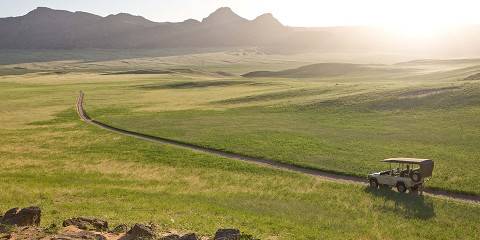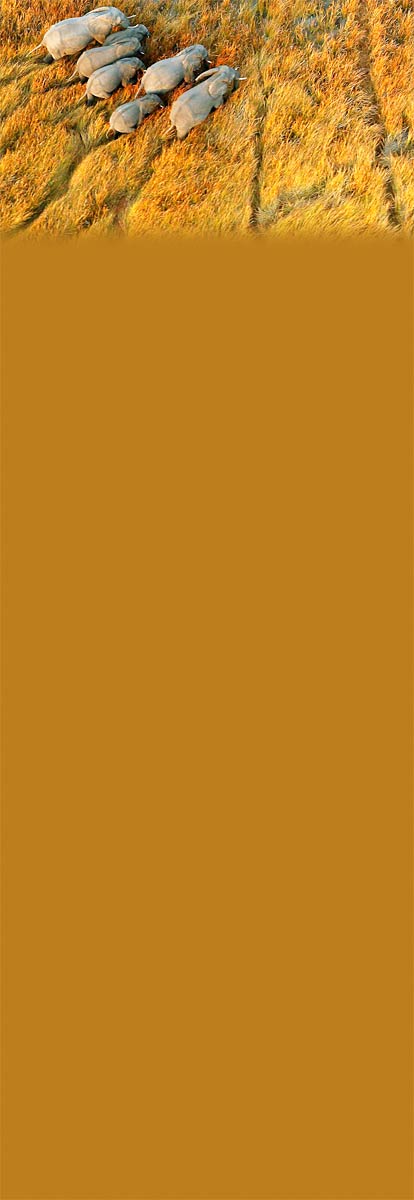
Safari Costs (USD per person per day)
The costings table here gives an overview of how much the average safari in each country will likely cost, allowing you to quickly choose the destination you can afford. Trips on our platform range from 1 day to 29 days in length.
(USD per day)
(USD per day)



(USD per day)
(USD per day)



(USD per day)
(USD per day)



(USD per day)
(USD per day)



(USD per day)
(USD per day)



(USD per day)
(USD per day)



(USD per day)
(USD per day)




Rates are in USD $ unless otherwise indicated.
Rates exclude additional costs, such as international flights, tips and personal items.
All 17,091 Safari Tours
Additional Costs Explained
The following table covers a few additional costs – some obvious,
-
International Flights
To keep costs down avoid flying during school holidays. Secondly, don't fly direct. Doing so is almost always more expensive than transiting a third country.
-
Visa Costs
Rules and regulations vary by nationality and destination country, but all East African and many southern African countries charge for visas. Normally this is in the range of US$30 to US$50 per person.
-
Accommodations
Check your flight schedule. If you arrive in the afternoon your tour may start the next day and so you might need accommodations before the tour starts. The same rule might also apply at the end of your safari if you have an early morning flight.
-
Vaccinations
Health-wise you will probably need several vaccinations before arrival in most safari destinations. Malaria is widespread and a serious risk – it's recommended to take anti-malarial medication (seek advice from your local doctor).
-
Tips
Tips for drivers, waiters, room staff and guides can quickly add up. Bring a couple of hundred US dollars in smaller bills to cover tips. To give you a hint: US$15 per person per day.
-
Travel Insurance
Don't even think about skipping this. A decent policy can cost anything from US$50 to US$175 for two weeks.
8 Factors Influencing the Cost of a Safari
Now you’ve considered the additional costs you can start to look at all those other variables that can influence overall safari costs.
-
1
How many days you want to do a safari
We hardly need to state that the length of time you spend on an African safari has a direct impact on how much it’s going to cost you. And the more days you spend on safari (with the same company), the less you’re going to end up paying on a per day basis.
-
2
When you want to go
Visiting much of Africa during the school holidays costs more than going outside the holidays, but other local factors can also impact the cost of your safari. The majority of African national parks have periods when the wildlife spotting is better than other times. If you want to keep costs down, try visiting during a park’s off season. While this can mean less visible wildlife and, if it’s the Wet season, occasionally washed out roads, it does bring significantly lower prices, less tourists, and gorgeously lush countryside.
-
3
Where you want to go
Many people are surprised to discover that much of southern Africa, where park infrastructure is often better and self-drive and camping safaris easier, offers a cheaper safari experience than East Africa.
-
4
What level of accommodations you are comfortable with
As with any holiday, accommodation is going to eat up the lion’s share of your budget. Starting at the very top are the highly exclusive, tented camps often found in private or community conservancies. Deliciously romantic they might be, but there’s no getting away from the fact that these places cost a fortune. In high season many come in at a cool US$2,000 per night for two people.
-
5
The location of the accommodations
One good way of saving money is by staying outside of the parks. The problem with doing this is that you’ll normally miss the first dawn light or the glow of dusk. Both of which are the prime animal spotting times.
-
6
How you get around
Most camps and lodges offer morning and evening safari drives. At the very top-end places these will be conducted in custom-made luxury safari jeeps. At the opposite end of the spectrum come the pop-top minibuses used by many budget safari companies. Be careful with these. Some companies make sure that every seat in the vehicle has someone sat on it and if you get a middle seat you won’t see much.
-
7
How exclusive you would like your experience to be
Head to big name parks such as Kruger in South Africa and you’ll find lower prices, but also tarmac roads and masses of other people. By contrast, head to one of the private concessions in Botswana’s Okavango Delta and you’re guaranteed peace and tranquility, but at a price.
-
8
Specific requirements due to interests or hobbies
National park boards are fully aware that people are willing to pay more to see a cheetah than a hornbill (a type of bird). Visiting a park with an abundance of large and visible mammals will invariably cost you more than visiting a small, low-key park where the wildlife attractions are more specialized. If keeping costs down is important then limit your time in big-name parks and instead get excited by the birds and the bees in the smaller, lesser-known protected areas.

Ready To Find Your Dream Safari?



